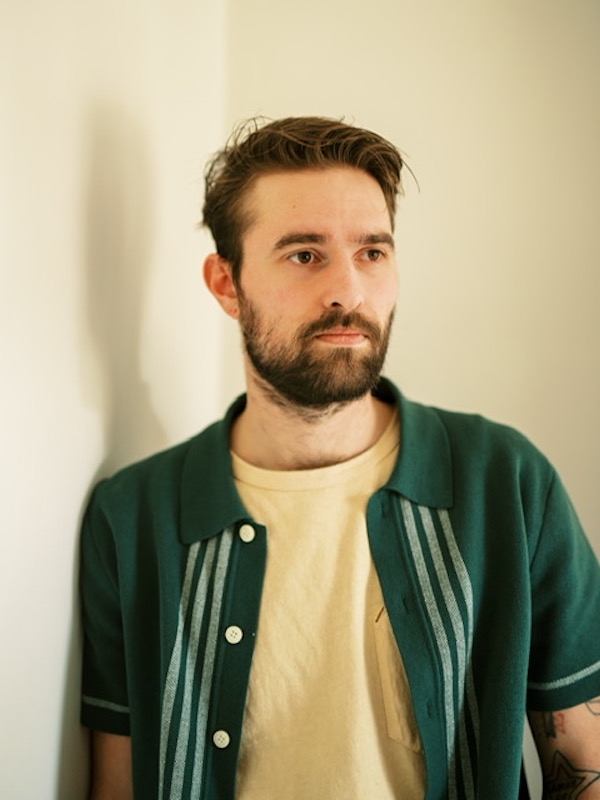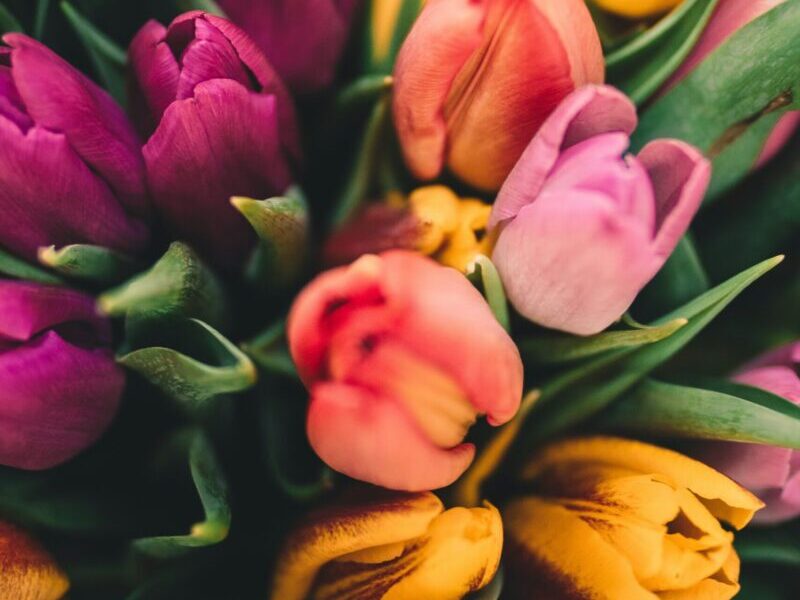William Bortz on Wondering, Writing, and the Gift of Rituals
“A day so happy.
Fog lifted early, I worked in the garden.
Hummingbirds were stopping over honeysuckle flowers.
There was no thing on earth I wanted to possess.
I knew no one worth my envying him.
Whatever evil I had suffered, I forgot.
To think that once I was the same man did not embarrass me.
In my body I felt no pain.
When straightening up, I saw the blue sea and sails.”
I think about this poem a lot. I’ve carried it with me since I first read it. It’s entitled ‘Gift’ by Czeslaw Milosz. After the first read, like me, you may be wondering what this poem is about. Seemingly, it feels as though it is about nothing. Which is how I like to think of it. It is about a moment as mundane as one could possibly ask for. But Milosz speaks of this moment in such a profound way—the absence of want, envy, evil, shame, and pain.
We all have moments like this—I have moments like this. Today, actually.
Today is the first warm day in the Midwest. A day in which the chirping from birds seems like it’s being fed through a megaphone. The sun sits heavy on skin and feels, for the first time in a long time, hot. People are everywhere—places people normally aren’t. Everyone is shaking off the cold that has been sitting in their bones for months. Like many other Midwesterners, I have a ritual for this very day. I make up an errand or chore—something that gets me in a car, driving to someplace I really don’t need to be driving to. I roll down the windows and play GROUPLOVE’s album Never Trust a Happy Song at an absolutely absurd volume. And nothing comes to mind. I notice how the clouds are starting to take their summer shape; and, again, notice people wandering about drinking in the arrival of spring; and feel the new warmth being poured out over me. That is all. Like Milosz, no thoughts of want, or pain, or hunger creep into my mind. I am simply and overwhelmingly content.
Again, this may seem like all of this is about nothing—which in a sense it is. The ritual I mentioned is probably a decade old—dating back to a very similar day when I was content and did nothing but notice things. It makes me consider all my other, less involved rituals of simply noticing things I see every day but not paying attention. Mornings in which I drink my tea and stand in the sun; walking to the grocery store two blocks from my house. Simple things. What I have come to learn is how little I spend time paying attention to things I walk past very often. How little time I spend in my proverbial garden noticing and not wanting.
So much of our lives are spent this way. Waiting in lines. Reading a book before bed. Eating lunch at the same time every day. Sitting with our cat, partner, friend, stranger, etc. So much of our lives are spent doing the most mundane thing over and over and over again. A seriously large portion is spent between things. So that makes you wonder what we’re missing. Will your day be ruined if you happen to not notice the newly-sprouting tree you drive by every day on your way to work? Most likely not, but it also won’t make you wonder. It won’t make you consider the passing of time or how spring’s gentle hold makes so many small brilliant things unfurl or how some family of birds will most likely nest in that tree or how you may be walking by this same tree in a few months with someone you love once it’s fully bloomed and be able to remember how you noticed it bare, and in a lot of ways that is exactly how love begins—slowly, and then one day it just is.
The other side of this is questioning how often we do consider our wants, pains, shame, etc. How often we are enveloped by what was, what isn’t, or what hasn’t yet come. We miss so much. There is value in all of this—in art, in writing, in healing. But equally, there is so much value in being present, in being content—which can and commonly takes practice. But think about the poems or stories you’ve read that were so rich in imagery you could practically taste them, hear them, feel them—you felt as though you were there. That happened because the writer was noticing things. There is incredible value to the soundtrack of our lives, to the backdrop of our everyday. It gives context and allows us to latch onto it and remember it later. It gives us something to be nostalgic about. It gives so much value that a simple drive on a warm day becomes a ritual that brings joy and contentment. It makes us think less about what we do not have yet and focuses our attention on being grateful for what we do have. And we always have more than what we tell ourselves.
All in all, what Milosz is saying, and what our rituals of finding contentment say about us, is there is a very large world waiting outside our door and we long to notice and wonder about its smallest details. And isn’t writing simply wondering about things—and hoping someone else has wondered about them, too?




